Questões de Língua Inglesa da Fundação CESGRANRIO (CESGRANRIO)
Lista completa de Questões de Língua Inglesa da Fundação CESGRANRIO (CESGRANRIO) para resolução totalmente grátis. Selecione os assuntos no filtro de questões e comece a resolver exercícios.
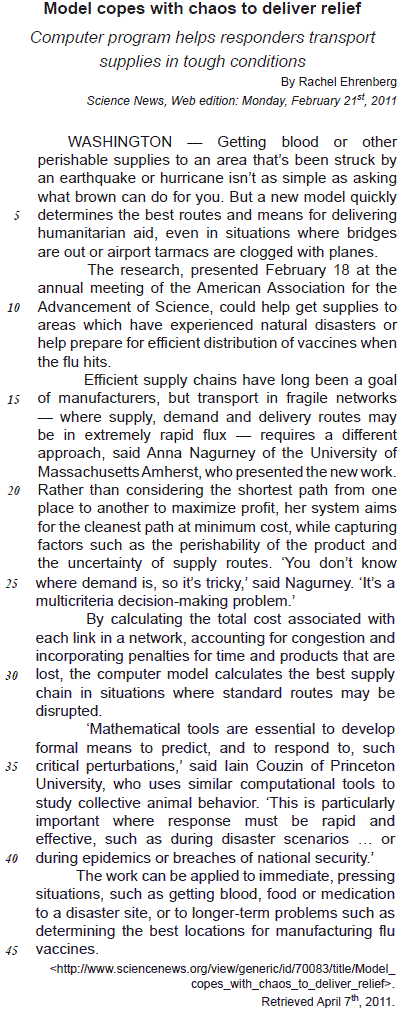
According to Anna Nagurney, in paragraph 3 (lines 14-26), an efficient logistics system must consider the
- A.
shortest route that links two fragile end points.
- B.
only means to take perishable goods by land.
- C.
most profitable network, in terms of cheap transport.
- D.
lowest cost to place goods safely and in adequate conditions.
- E.
use of standard transportation means normally used for medical products.
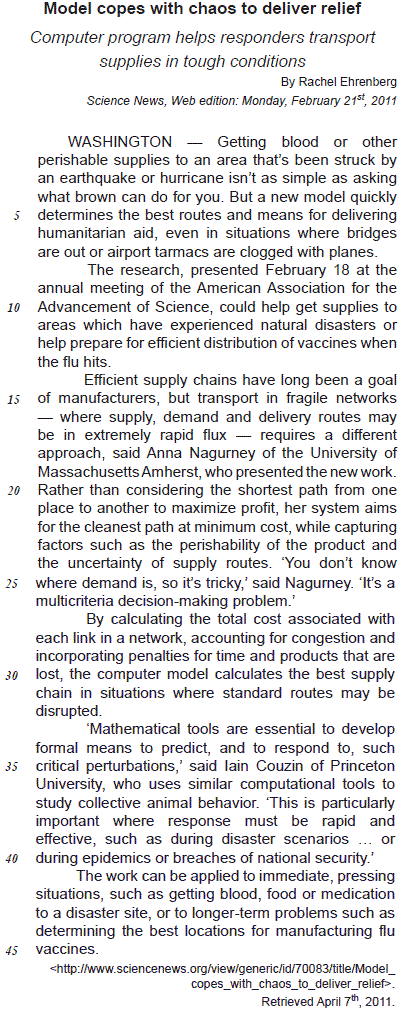
Nagurneys comment Its a multicriteria decision-making problem. (lines 25-26) refers to the fact that
- A.
in regular deliveries, many problems are caused by the same factors.
- B.
the transportation of unperishable goods is the single issue to be considered.
- C.
finding efficacious transportation solutions depends exclusively on political decisions.
- D.
inefficient management has been multiplying the problems caused by distribution channels.
- E.
delivering products in emergency situations requires analyzing many factors besides cost and time.
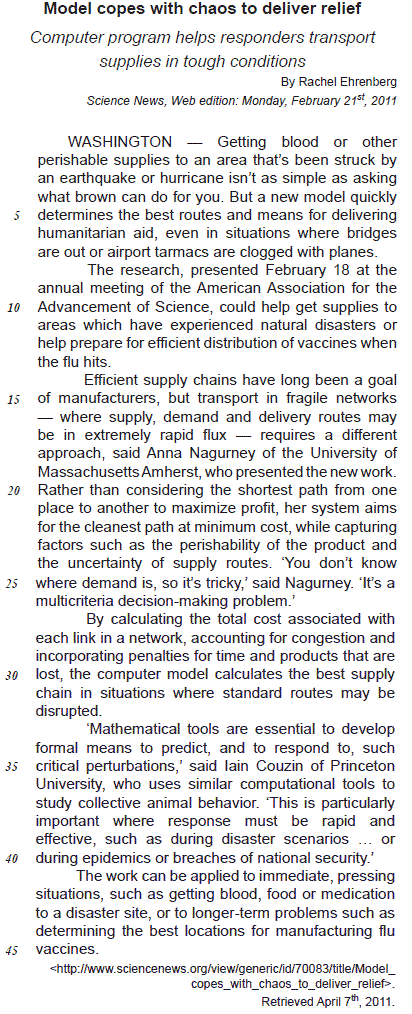
Iain Couzin is mentioned in paragraph 5 (lines 33-40) because he
- A.
believes that computational tools are very useful in predicting and reacting to misfortunate incidents.
- B.
provides the only efficient alternative to the computer model presented by Anna Nagurney.
- C.
claims that the use of computational tools in dealing with disaster scenarios has been ineffective.
- D.
found a faster and more reliable means of preventing epidemics and breaches of security.
- E.
developed mathematical tools to justify individual animal routines.
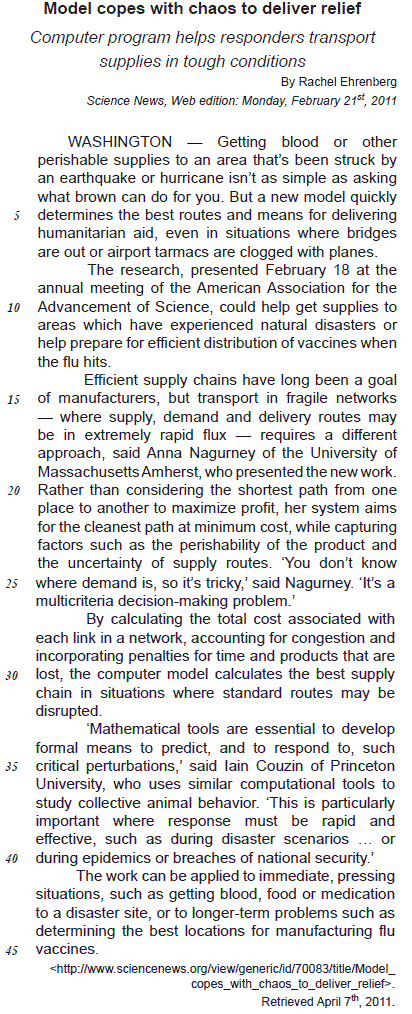
such critical perturbations, (lines 34-35) refers to all the items below, EXCEPT
- A.
congestion
- B.
delivery delays
- C.
computer supplies
- D.
disrupted roads
- E.
loss of products
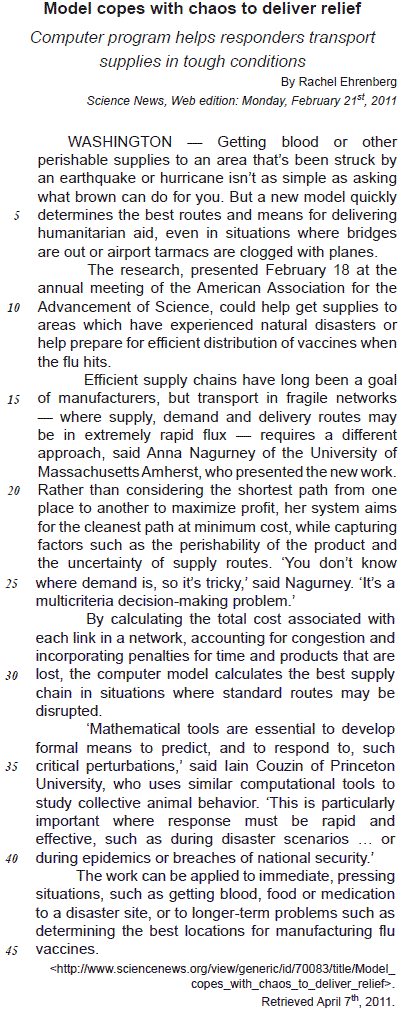
Based on the meanings in the text, the two items are antonymous in
- A.
tough (subtitle) complicated
- B.
clogged (line 7) crowded
- C.
disrupted. (line 32) destroyed
- D.
breaches (line 40) violations
- E.
pressing (line 41) trivial
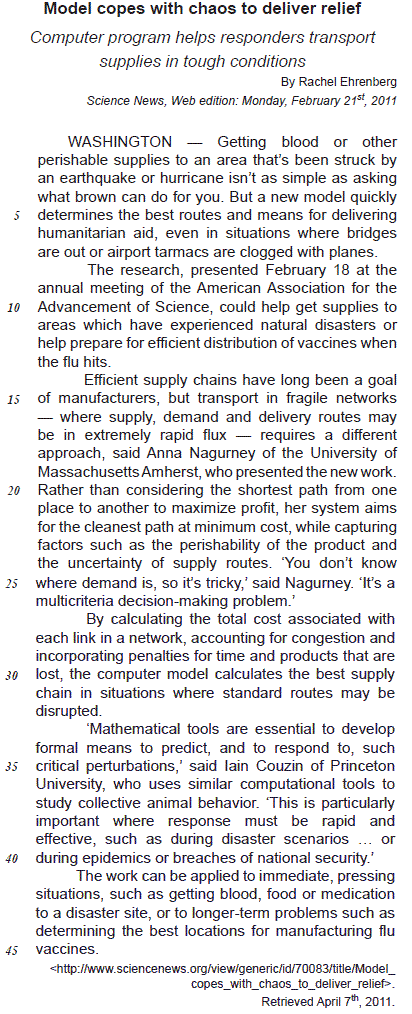
In The work can be applied to immediate, pressing situations, (lines 41-42), the fragment can be applied is replaced, without change in meaning, by
- A.
may be applied.
- B.
has to be applied.
- C.
ought to be applied.
- D.
will definitely be applied.
- E.
might occasionally be applied.
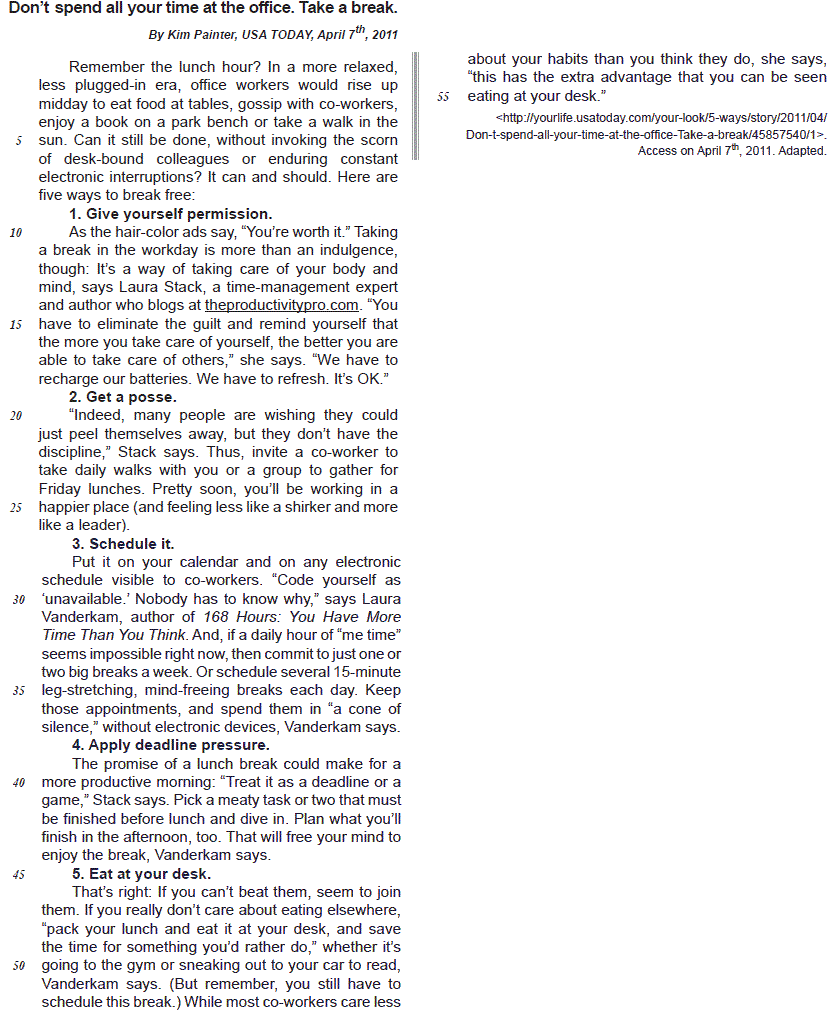
The authors main purpose in this text is to
- A.
warn readers against working all day without having lunch.
- B.
list five things all office workers should do to get a promotion.
- C.
argument in favor of eating lunch in the office to save more time for gym classes.
- D.
explain why readers should get rid of their electronic devices for fifteen minutes every day.
- E.
convince readers to have a healthier job routine by including some time away from work.
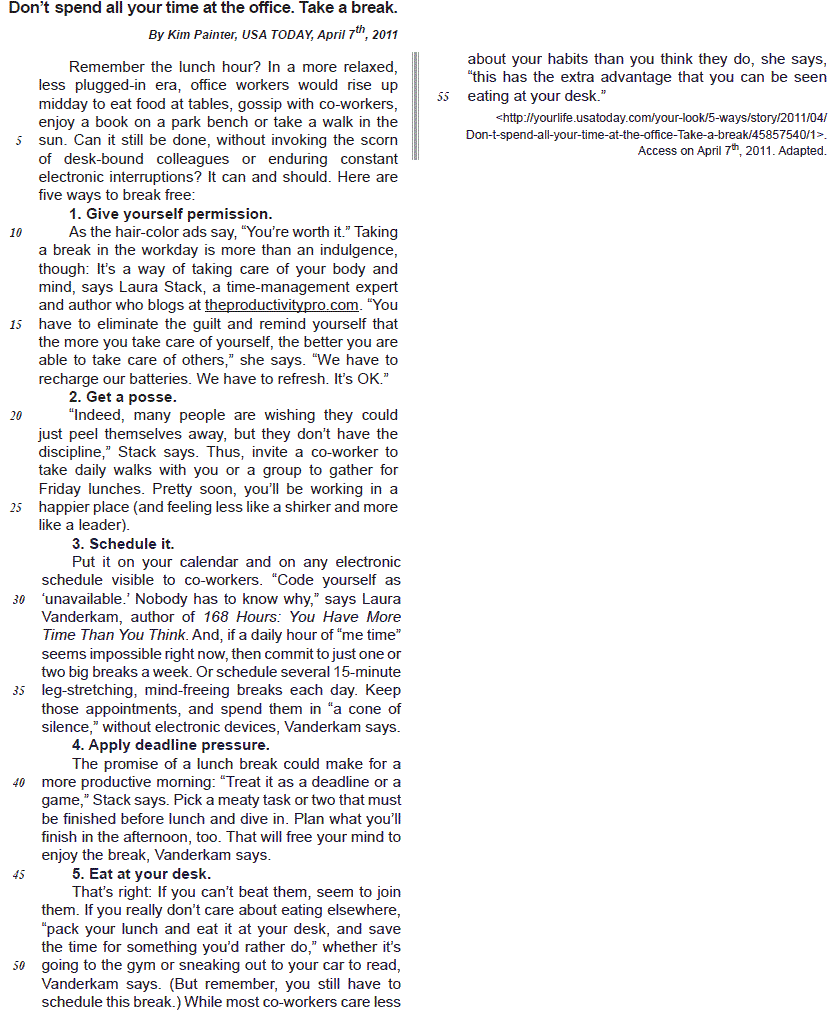
In the fragments, office workers would rise up midday (lines 2-3) and You have to eliminate the guilt (lines 14- 15), the verb forms in bold express the ideas, respectively, of
- A.
necessity suggestion
- B.
habit in the past obligation
- C.
possibility hypothesis
- D.
ability probability
- E.
intention inference
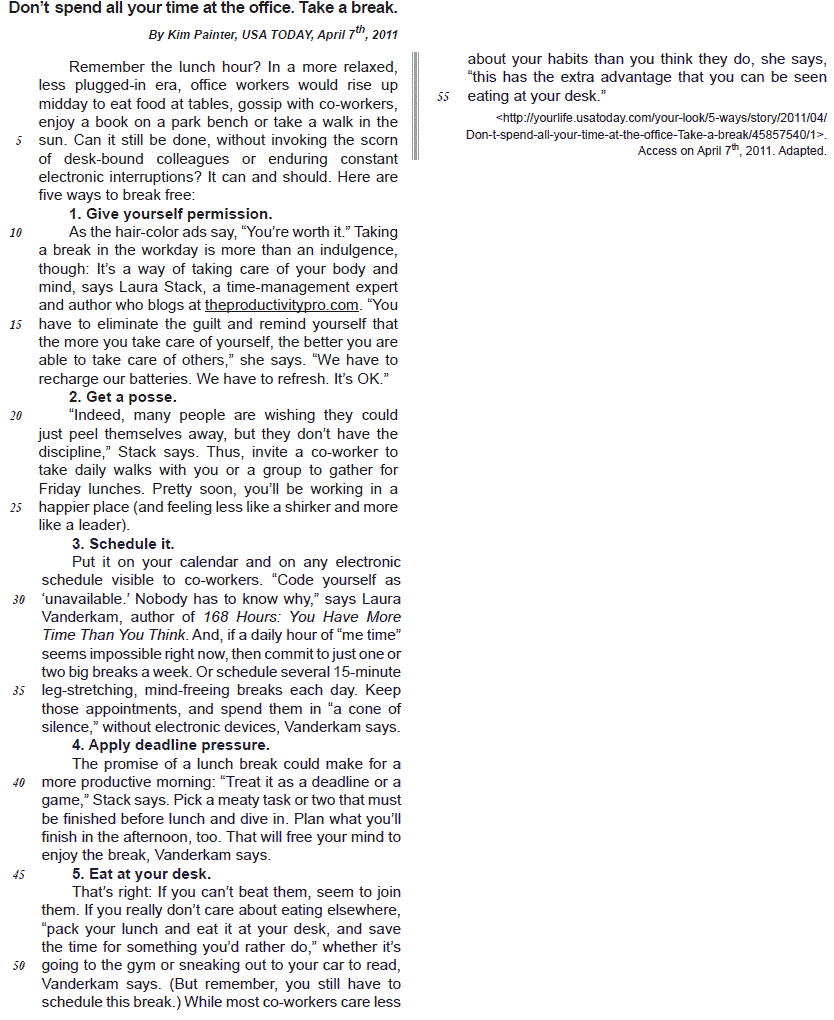
The author uses the fragment Code yourself as unavailable. (lines 29-30) to mean that
- A.
work mates must learn that you are not to be disturbed at any time.
- B.
nobody needs to ask you why you are not at your desk at a certain hour.
- C.
workers should predict when their managers electronic schedules will not be available.
- D.
all electronic schedules and agendas must be seen by the team members who share your office.
- E.
professionals should assign periods in which they will be unreachable by their colleagues at work.
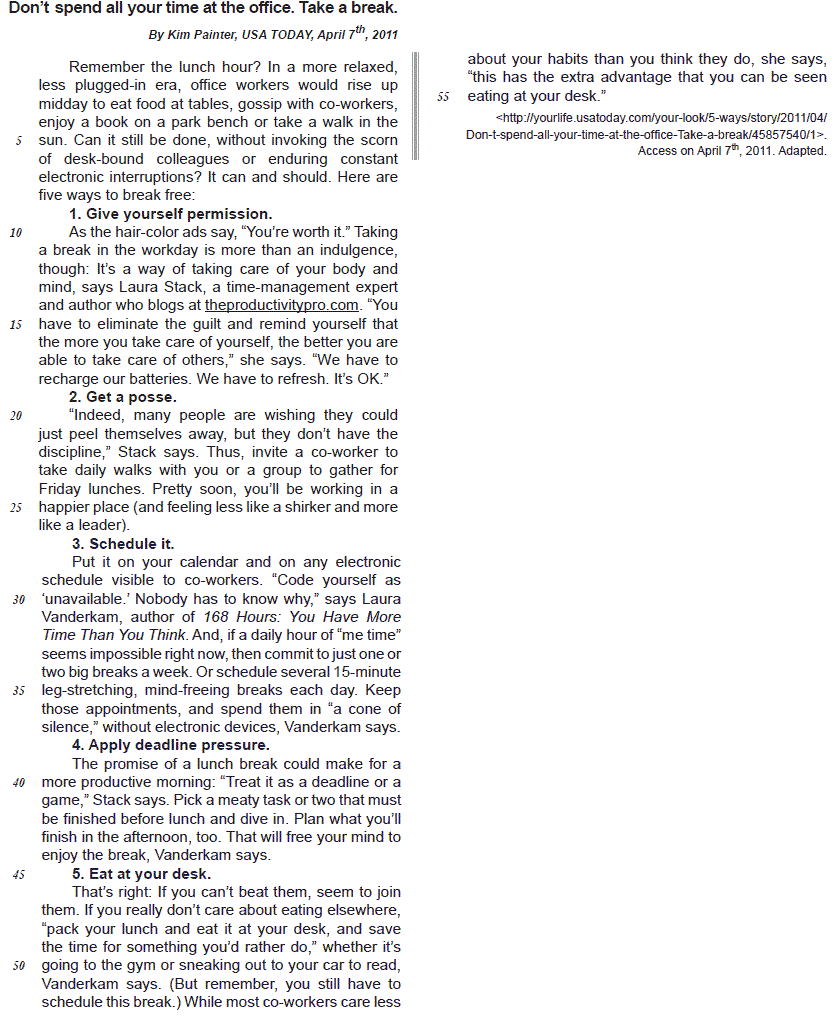
In the excerpts The promise of a lunch break could make for a more productive morning: (lines 39-40) and whether its going to the gym or sneaking out to your car to read,(lines 49-50), the verb phrases make for and sneaking out to mean, respectively
- A.
bring about slipping away to
- B.
call off hurrying on to
- C.
get rid of leaving from
- D.
fight off coming out of
- E.
put up escaping from


